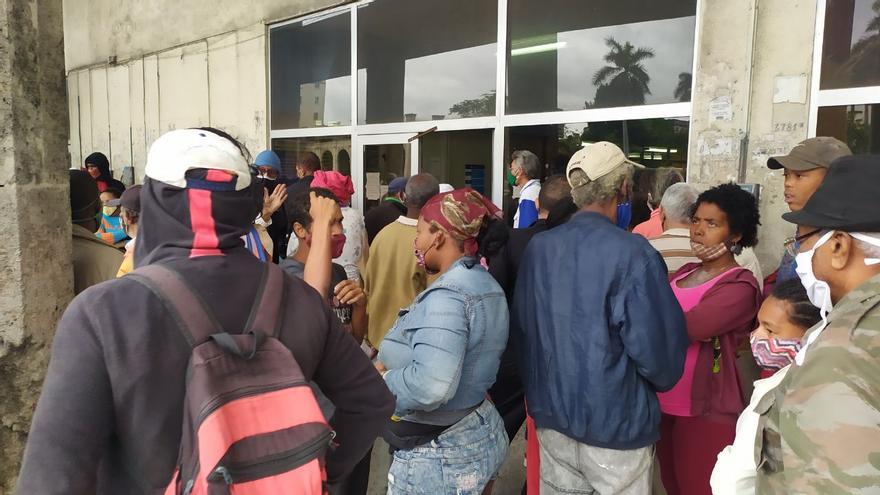
![]() 14ymedio, Jorge Hernández Fonseca, Havana, 27 December 2020 — The abolition of the Cuba’s dual currency system is, as we all know, essential to the development of a healthy economy on island. It is a reform the Communist nomenklatura has said it will adopt but which it is reluctant to undertake for fear of losing the political power it holds by force. Nevertheless, the Castro regime decided to go ahead with the so-called “ordering task” at the worst possible moment for the economy. It did so to play down and distract attention from the government’s reaction to a grassroots movement which has sprung up spontaneously in opposition to the dictatorship. This has only added fuel to an already out-of-control wildfire: rebellion.
14ymedio, Jorge Hernández Fonseca, Havana, 27 December 2020 — The abolition of the Cuba’s dual currency system is, as we all know, essential to the development of a healthy economy on island. It is a reform the Communist nomenklatura has said it will adopt but which it is reluctant to undertake for fear of losing the political power it holds by force. Nevertheless, the Castro regime decided to go ahead with the so-called “ordering task” at the worst possible moment for the economy. It did so to play down and distract attention from the government’s reaction to a grassroots movement which has sprung up spontaneously in opposition to the dictatorship. This has only added fuel to an already out-of-control wildfire: rebellion.
You cannot do currency reform without providing goods and services. The viability of any currency is decided in the marketplace, not in some bureaucrat’s office. In essence, the market is about supply and demand for goods and services, exactly what universal socialism cannot provide. There can be no “ordering” possible without first offering goods and services. However, the problems caused by the government’s attempts to suppress the San Isidro Movement and clumsy public missteps by top officials of the Ministry of Culture have continued unabated.* The disruptions brought about by the ordering task will have dire consequences when chaos and disorder increase in 2021.
Additionally, there is the underappreciated level of expectation in Havana in regards to support the the regime might receive from the incoming American administration. In any case, economic support will not be forthcoming during first phase of a new relationship with the Biden administration, which will be faced with both repression in the streets of Havana and chaos caused by a disorderly currency unification process in an economy with few goods or services. This creates a situation in which the most vulnerable sectors of society — retirees, the elderly and the underprivileged — will undoubtedly suffer the most harm.
It is clear that, for a variety of reasons, the bipartisan establishment in the U.S. is not interested in defeating and replacing the Cuban dictatorship right now. However, the disorder that the island’s own authorities have planned for the beginning of next year could jeopardize this stance. One thing the American establishment does value is the island’s stability, which could be threatened by the perfect storm of political challenges posed by the San Isidro Movement and the economic disruption Cuban officials have planned.
For the first twenty days of January the U.S. government will still be led by Donald Trump, who will not hesitate to react forcefully to any possible violations of civil and political rights which the Cuban regime refuses to respect. In the event of blatantly repressive moves, the new Biden administration will be forced to take action against the regime. Civil recognition is one thing but support for a repressive dictatorship in full attack mode against a people without food or freedom who are demanding their rights is quite another.
*Translator’s note: The San Isidro Movement (MSI) begin in September 2018 as a protest against state censorship of artistic works and has become a platform for Cuban dissidents both at home and abroad. In November 300 MSI members and supporters, surrounded by police, demonstrated outside the Ministry of Culture, demanding dialogue with its vice-minister, who met with them for five hours.
____________
COLLABORATE WITH OUR WORK: The 14ymedio team is committed to practicing serious journalism that reflects Cuba’s reality in all its depth. Thank you for joining us on this long journey. We invite you to continue supporting us by becoming a member of 14ymedio now. Together we can continue transforming journalism in Cuba.
